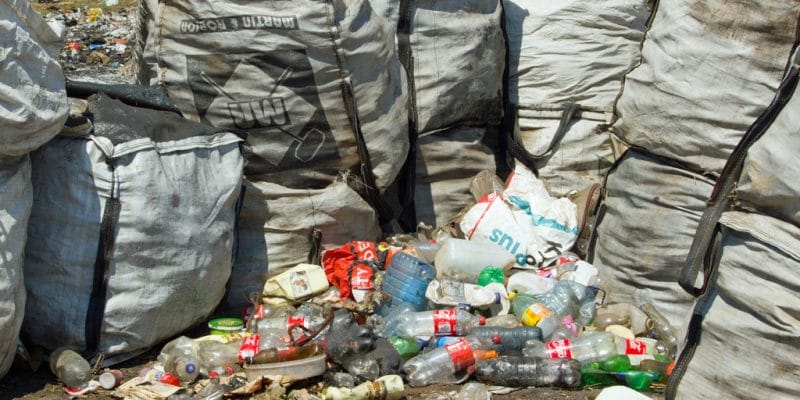In Gabon, the sum of 500,000 CFA francs (750 euros) is at stake in a campaign to collect plastic bottles organised by the government. The initiative, which is mobilising many residents of Greater Libreville until 10 June 2022, will help reduce plastic waste pollution.
While the United Nations (UN) launched negotiations in March 2022 for a global agreement on plastic pollution by 2024, Gabon is fed up with its tides of plastic waste. To mark World Environment Day on 5 June 2022, the Gabonese authorities have organised a “plastic bottle challenge” aimed at reducing pollution in this country of 2.2 million inhabitants.
The initiative, which ends on 10 June 2022, consists of collecting and depositing a minimum of ten bottles in the town halls of Libreville, Owendo, Akanda and Ntoum, for the sum of 100 CFA francs (0.15 euros). At the end of the campaign, three citizens will be awarded 500,000 CFA francs (762 euros) for the best collection, 200,000 CFA francs (304 euros) for the second best, while the third winner of the competition will receive a voucher.
This campaign is being launched just a few months after a sanitation operation carried out by the Gabonese army. This other initiative, launched in February 2022, resulted in the collection of 6 tonnes of waste in a drainage canal in the capital Libreville, 16,000 plastic bottles in Akanda and around 300 tyres. Despite these existing initiatives, Greater Libreville continues to produce 600 tonnes of waste per day, 70% of which is made up of plastics according to the government.
Read also-GABON: The army is called in to assist with waste collection in Libreville
According to the Organisation for Economic Co-operation and Development (OECD) report on the “Global Plastics Outlook: Scenarios for Action to 2060”, global plastic production could increase by 1.2 million tonnes from the 460 million tonnes recorded in 2019. This could lead to the same proportion of plastic waste in nature if nothing is done by public policies in each country.
Benoit-Ivan Wansi





